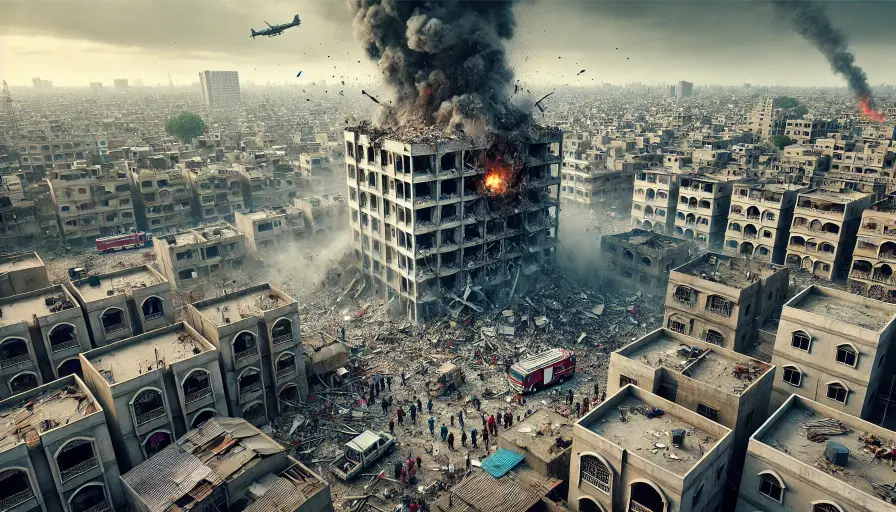Israel carried out an air strike in Beirut, killing at least three people in a move that could raise tensions between the country and the Lebanese terrorist group Hezbollah.
Israel’s military said that Tuesday’s attack targeted Hezbollah commander Fuad Shukr, also known as Mohsen Shukr and al-Hajj Mohsen.
Iran has threatened Israel with an “obliterating war” if it attacks Lebanon.
The blast was heard in Beirut’s southern suburbs at approximately 19:40 local time (16:40 GMT) on Tuesday evening.
It hit the Haret Hreik neighborhood near Hezbollah’s Shura Council, its central decision-making authority.
Israel’s assassination of Shukr came in response to a missile strike launched by the Iranian proxy Hezbollah which targeted a soccer field in Majdal Shams in northern Israel. The strike killed 12 children and wounded 30 people from the Israeli Druze community.
Hezbollah’s missile strike appeared to be a calculated move, likely intended to send a message of defiance and demonstrate its military capabilities. The choice of target—a public sports field—suggests an attempt to impact civilian life and sow fear, rather than solely engaging military targets.
Israel’s response has been swift and forceful. The Israeli Defense Forces (IDF) launched a series of retaliatory airstrikes targeting Hezbollah positions in southern Lebanon. These strikes aimed to weaken Hezbollah’s military infrastructure and deter future attacks. Israel’s government has also reiterated its commitment to safeguarding its citizens and maintaining security along its northern border.
Since launching its war on Gaza in October after Hamas terrorists poured across the border killing 1,200 Israeli civilians and kidnapping 250, Israel has attacked Beirut at least once before Tuesday’s attack. On January 2, Israel carried out a strike that killed senior Hamas official Saleh al-Arouri.
Israel’s last attack on Beirut before this was in 2006, during the 34-day war between Israel and Hezbollah.
This cycle of action and retaliation is emblematic of the longstanding and deeply rooted conflict between Hezbollah and Israel.
Hezbollah, backed by Iran, continues to assert its resistance against Israeli policies and presence in the region. On the other hand, Israel remains focused on neutralizing threats to its sovereignty and ensuring the safety of its population.
The international community is closely monitoring these developments, with calls for restraint and dialogue to prevent further escalation.
However, the deeply entrenched positions of both Hezbollah and Israel make a swift resolution unlikely. The recent missile strike and subsequent Israeli response highlight the volatile nature of the region and the persistent risk of broader conflict.
For now, both sides appear to be in a state of heightened alert, preparing for potential further engagements. The coming days and weeks will be critical in determining whether this incident will lead to a temporary lull or a more sustained period of confrontation.
As always, the humanitarian impact on civilians caught in the crossfire remains a significant concern, underscoring the urgent need for diplomatic efforts to address the underlying issues driving this conflict.
